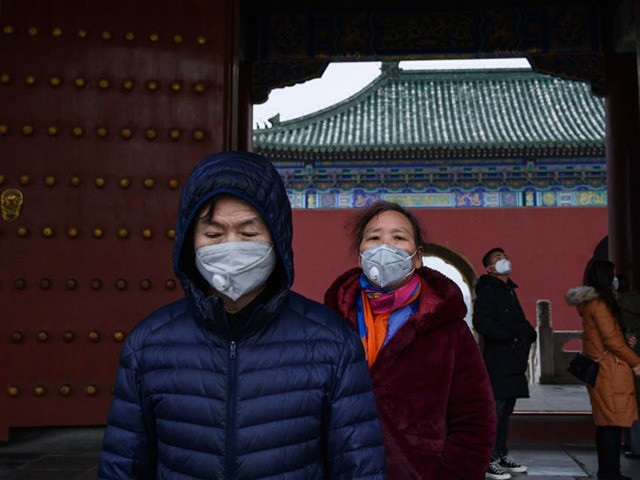Communist Party officials said on Tuesday they found local officials in Wuhan had responded with severe negligence to initial reports of infections of coronavirus and exacerbated the emergency.
The Global Times, a Chinese state propaganda newspaper, quoted a Beijing official at the General Office of the State Council blaming local officials for a particularly embarrassing incident in which Wuhan health workers intended to transfer coronavirus patients from their homes to hospitals – Wuhan officials had told those with symptoms to self-medicate at home for the first month of the outbreak.
After weeks of reports of ill patients demanding treatment at hospitals and urging doctors to test them to confirm their condition and being turned away, the Communist Party announced it would take in all patients languishing in their homes at once on Sunday. The result, according to Chinese state media itself, was a disaster:
Due to the lagging work, disorderly liaison and organization of the Wuchang district government, the conditions of the transfer buses were poor and there was no working staff from the community following the car. This led to critically ill patients waiting for a long time and getting emotional.
Global Times reporters in Wuhan tagged along with one transfer operation in the city’s Wuchang district around Sunday midnight. And they saw that the bus designated for the transfer operation was a public city bus, which was loaded with more than 30 senior patients who were seriously ill.
The number of patients outnumbered the seats, and some who were standing grew so exhausted that they sat down on the aisle.
There were no quarantine measures between the bus driver and the patients, and the bus driver himself was not in a standard protective outfit required for contact with critically ill patients.
The Global Times cataloged the one bus driver suffering “several emotional breakdowns” while those he was attempting to transport broke down in tears. After hours of getting lost on the way to the hospital, several patients reportedly collapsed upon getting out of the bus.
The Chinese Communist Party appears to have chosen to be transparent about the horrifying conditions surrounding this transport – unlike the many reports of Chinese police welding families shut in buildings to keep the virus from spread – because it is holding Wuhan officials solely responsible for the chaos.
“We need to do good things well. How can we turn good things to bad? Why did these Party members and officials responsible for transferring these critically ill patients not follow the car? Wuhan is now in wartime. These people behaved very badly,” General Office of the State Council, Gao Yu, reportedly berated Wuhan officials “summoned” before their Beijing superiors.
Gao reportedly ordered higher-ranking regional officials to “hold those responsible to account in strict accordance with Party discipline and government discipline.” The Global Times did not list any specific repercussions the individuals identified would face, nor did it name them.
The stern report criticizing Wuhan officials followed what appeared to be the beginning of a political purge in Hubei province, whose capital is Wuhan, on Tuesday. Communist officials dismissed the head of Hubei’s public health commission Liu Yingzi and the Communist Party member overseeing the agency, Zhang Jin, for failing to adequately respond to the crisis. Last week, officials announced their first government firings: the mayor of Huajiahe, a village in Hubei, and the Communist Party secretary of the village.
The Huajiahe officials were dismissed following the death of a teen boy with cerebral palsy. The boy, identified as Yan Cheng, could not eat, drink, bathe, or engage in other necessary human functions without aid, yet government officials quarantined his family on suspicions of coronavirus contamination, leaving him alone in his home.
The first official to offer his resignation if needed, Mayor Zhou Xianwang of Wuhan, remains in office at press time. In a press conference in January, Zhou admitted to being aware of the coronavirus outbreak long before instituting measures to protect the public from a larger outbreak, but only announced a city-wide lockdown after 5 million of the city’s 11 million residents had left, most on vacation during the Lunar New Year holiday. Zhou also blamed senior Communist Party officials for his secrecy.
“On one hand, we did not reveal [information] in time; on the other, we did not use effective information to improve our work to a satisfactory level,” Zhou said. “Regarding the untimely disclosure, [I] hope everyone can understand. [Coronavirus] is a contagious disease. Contagious diseases have relevant law and information needs to be disclosed according to law.”
In addition to the ongoing wave of firings, Beijing deployed a “task force” of members of the National Supervisory Committee – dictator Xi Jinping’s personal “anti-corruption” squad – to investigate the death of Dr. Li Wenliang, who allegedly succumbed to the virus last week at age 34. Wuhan police arrested Li shortly before he fell ill for alerting other doctors to his suspicion that the virus was highly contagious. His death has fueled public anger against the Communist Party, which Party officials have attempted to use to rebrand Li as a Party martyr.
Follow Frances Martel on Facebook and Twitter.

COMMENTS
Please let us know if you're having issues with commenting.